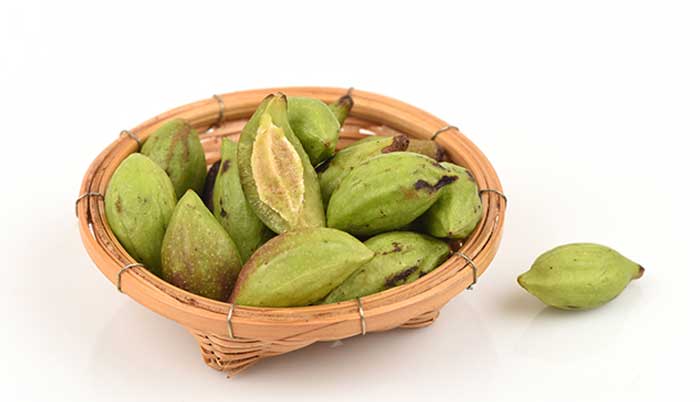![]() Home > Health
Home > Health
More “Folk Medicine” Holds Up Under Scientific Scrutiny: The Fruit Of An Evergreen Tree In Bangladesh Found To Reduce Fever, Pain, Inflammation

![]() January 12th, 2018 | 09:51 AM |
January 12th, 2018 | 09:51 AM | ![]() 1113 views
1113 views
NATURALNEWS.COM
Yellow Myrobalan (Terminalia citrina) is a type of large flowering plant widely found across India and Pakistan. Its fruits are of particular interest, as they’ve utilized in many kinds of simplistic medicinal applications. The pharmacological potential of these fruits hasn’t been fully explored until recently, when numerous Pakistani researchers from various institutions took it upon themselves to assess these fruits’ anti-inflammatory, antipyretic, and antinociceptive properties.
For the purposes of their study, the researchers obtained aqueous and ethanolic extracts from ground, dried Yellow Myrobalan fruits. These extracts were measured at 200mg/kg, 400mg/kg, and 600mg/kg that were administered to albino mice.
A carrageenan-induced paw edema test was carried out to determine the anti-inflammatory qualities of the fruit extracts. The mice were divided into eight groups of five; the first group was given a normal saline solution, the second incomethacin, while the rest of the groups were given varying amounts of Yellow Myrobalan fruit extracts. All of the mice were had a carrageenan solution injected into their right hind paws an hour later. The researchers noted that the mice from the normal saline group showed signs of increased inflammation. By contrast, the mice who had received the extracts of Yellow Myrobalan exhibited reduced inflammation, with the ethanolic extract displaying the most inflammation shrinkage.
This portion of their experiment also served to highlight the possible antinociceptive quality of the extracts, or their ability to inhibit the sensation of pain. The researchers measured this by observing the writhing of the mice. Those that had received indomethacin writhed the least. However, the writhing of the mice who had been injected with either ethanolic and aqueous extracts indicated that both could be useful in subduing pain.
To test the antipyretic or fever-reducing activity of the extracts, the researchers injected brewer’s yeast into the mice. After 18 hours when the temperature of the mice had risen by a small margin (roughly 0.5 to 0.9 degrees Fahrenheit), they were given normal saline, acetaminophen, or the aqueous or ethanolic extracts. Though the acetaminophen proved to the most effective at lowering fever, both extracts were noted for improving the body temperatures of various mice. Once again, the the highest dose of ethanolic extract was found to be the most sufficient in antipyretic action.
“The results of this study indicated that Terminalia citrina fruit extracts possessed significant anti-inflammatory, analgesic, and antipyretic activity at 200mg/kg, 400mg/kg and 600mg/kg as compared to the negative control group,” wrote the researchers in their study, which was been published in the African Journal of Traditional, Complementary and Alternative Medicines.
They added: “Effect of inhibition of inflammation and writhing and protection against fever was more at higher doses than at lower doses. Ethanolic extract of Terminalia citrina was more effective than the aqueous extract of the Terminalia citrina.”
Though the researchers noted that these positive have only thus far been observed in animals, they noted that the extracts could be helpful in later use. They explained that this was namely due to the side effects of medication typically used to manage pain and fevers. Among these side effects are gastrointestinal issues such as vomiting, nausea, and diarrhea; cardiovascular issues that increase the risk of heart attacks; and the long-term likelihood of addiction.
Because of this, the researchers and many others have begun looking into traditional medicines to treat common ailments. In addition to having fewer side effects than a good number of modern medicines, these traditional remedies are much cheaper as well, owing to them coming from natural sources that are most often widely distributed.
Source:
courtesy of NATURALNEWS
by Frances Bloomfield
If you have any stories or news that you would like to share with the global online community, please feel free to share it with us by contacting us directly at [email protected]